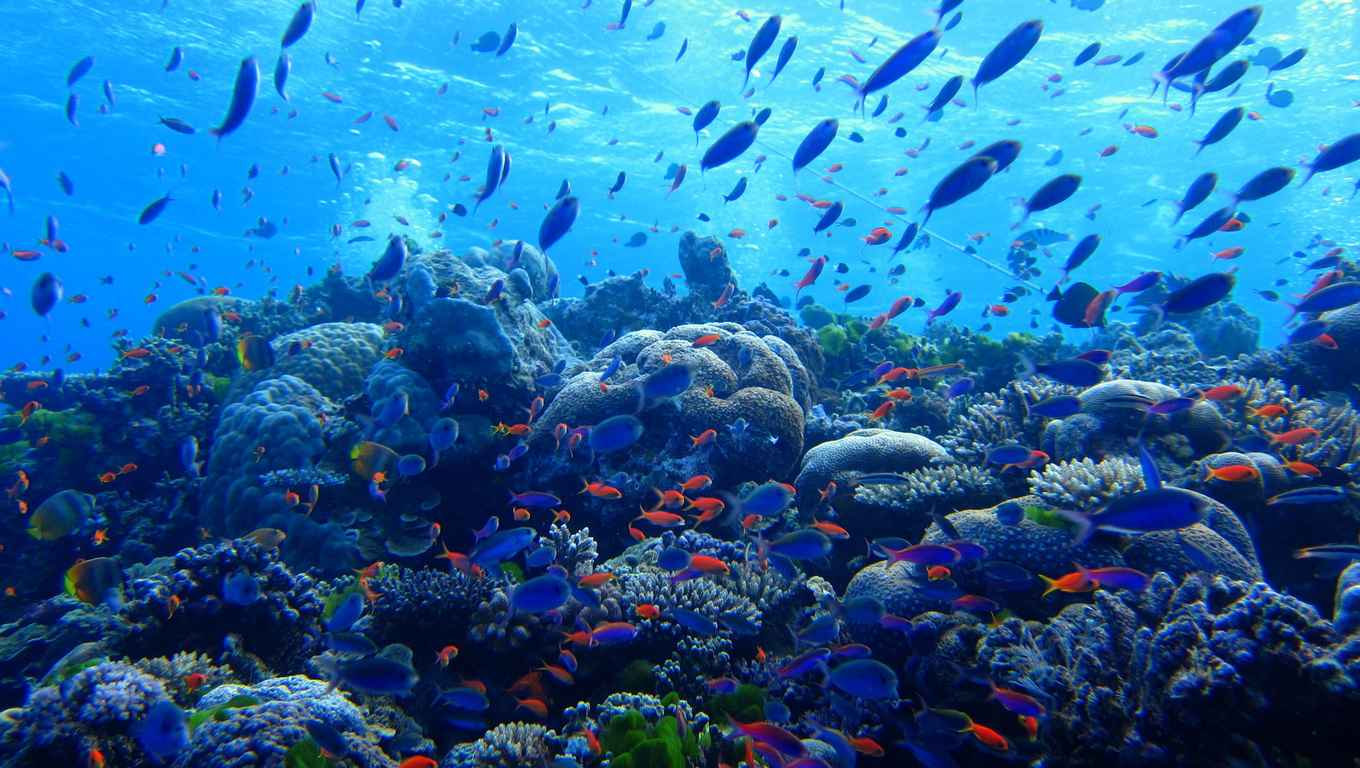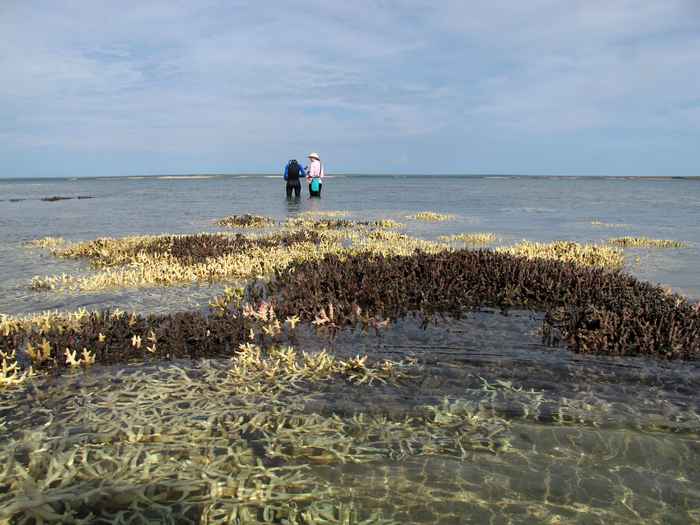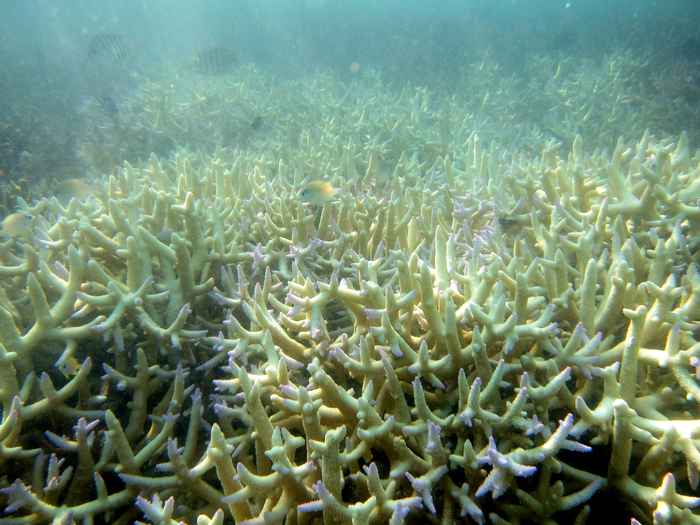Time running out to save coral reefs
10 May 2021

‘If the world can reduce carbon dioxide emissions drastically, coral-reef growth will be reduced, but many reefs will still be able to grow,’ says lead author Dr Christopher Cornwall, from the Victoria University of Wellington, New Zealand. ‘Some of them will even keep pace with sea-level rise. Even if we fail with those drastic reductions but do keep within the intermediate emissions scenario, some coral reefs will still keep growing for a short while, but by the end of the century they will all be eroding. If we hit the worst-case scenario, then very shortly all coral reefs will be eroding.’
Impact of climate change
The research by academics in New Zealand, Australia, the United States, France, The Netherlands and the United Kingdom breaks new ground.The interdisciplinary group of scientists formed initially as a working group led by the Australian Research Council’s Centre of Excellence for Coral Reef Studies in 2016. There has been a great deal of individual research investigating the impact of climate change on individual corals and coralline algae, but this work gives broader projections of ocean warming and acidification, and their interaction, on the net carbonate production of coral reefs, which is a measure of coral reef growth.

‘I was approached by Dr Cornwall and the team after presenting my research on coral calcification at the International Coral Reef Symposium 2016 in Honolulu, Hawai’i.’ says co-author Niklas Kornder, who is currently a PhD Candidate at the UvA Institute for Biodiversity and Ecosystem Dynamics. ‘Joining this effort was an obvious call given our common vision of generating global projections of coral reef accretion using the best available data and expertise to date.’
Calcification
‘We have known for more than a decade that ocean acidification will affect the ability of calcifying coral reef taxa to form their calcium carbonate skeletons, a process called ‘calcification’,’ says Dr Cornwall. ‘Also, we have known that ocean warming brings increasing frequencies of marine heatwaves that cause coral mass bleaching, and that this warming itself also reduces calcification once it gets above a certain threshold.’
‘However, what this study really highlights’ emphasizes co-author Dr Verena Schoepf, who is Assistant Professor at UvA-IBED, ‘is that coral mass mortality due to more frequent bleaching events predominantly drives the projected declines in coral reef growth, rather than the direct impacts of acidification and warming on calcification or bioerosion itself.’
Projections
The study used data on net calcification, bioerosion and sediment dissolution rates measured or collated from 233 locations on 183 distinct reefs, 49% of them in the Atlantic Ocean, 39% in the Indian Ocean and 11% in the Pacific Ocean. This was then modelled against three Intergovernmental Panel on Climate Change emissions scenarios for low, medium and high-impact outcomes on ocean warming and acidification for 2050 and 2100. The study projections show most coral reefs will be unable to maintain growth from carbonate production by the end of the century under the medium and high-impact scenarios. Even under the low-impact case, reefs will suffer severely reduced accretion rates.

‘We forecast mean global reef net-carbonate production under these three pathways will decline by 76%, 149% and 156% respectively by 2100. While 63% of reefs are projected to continue to accrete by 2100 under the low-impact pathway, 94% will be eroding by 2050 under the worse-case scenario, and no reefs will continue to grow at rates matching projected sea-level rise under the medium and high-impact scenarios by 2100,’ says Cornwall.
Drastic reductions in carbon dioxide emissions are now needed to give coral reefs the best chance of continuing to grow in a future ocean and keep up with sea-level rise. ‘We are already observing global shifts in coral assemblages and severely reduced coral cover due to mass bleaching events. It is very unlikely that corals will suddenly gain the heat-tolerance required to resist these events as they become more frequent and intense. Our only hope for these reefs now is converting to alternatives to fossil fuels as soon as possible,’ concludes Cornwall.
Publication details
Christopher E. Cornwall, Steeve Comeau, Niklas A. Kornder, Chris T. Perry, Ruben Van Hooidonk, Thomas M. DeCarlo, Morgan S. Pratchett, Kristen D. Anderson, Nicola Browne, Robert Carpenter, Guillermo Diaz-Pulido, Juan P. D’Olivo, Steve Doo, Joana Figueiredo, Sofia A. V. Fortunato, Emma Kennedy, Coulson A. Lantz, Malcolm T. McCulloch, Manual González-Rivero, Verena Schoepf, Scott G. Smithers, Ryan Lowe: ‘Global declines in coral reef calcium carbonate production under ocean acidification and warming,’ in PNAS 118 (21) e2015265118 (May 2021). DOI: https://doi.org/10.1073/pnas.2015265118